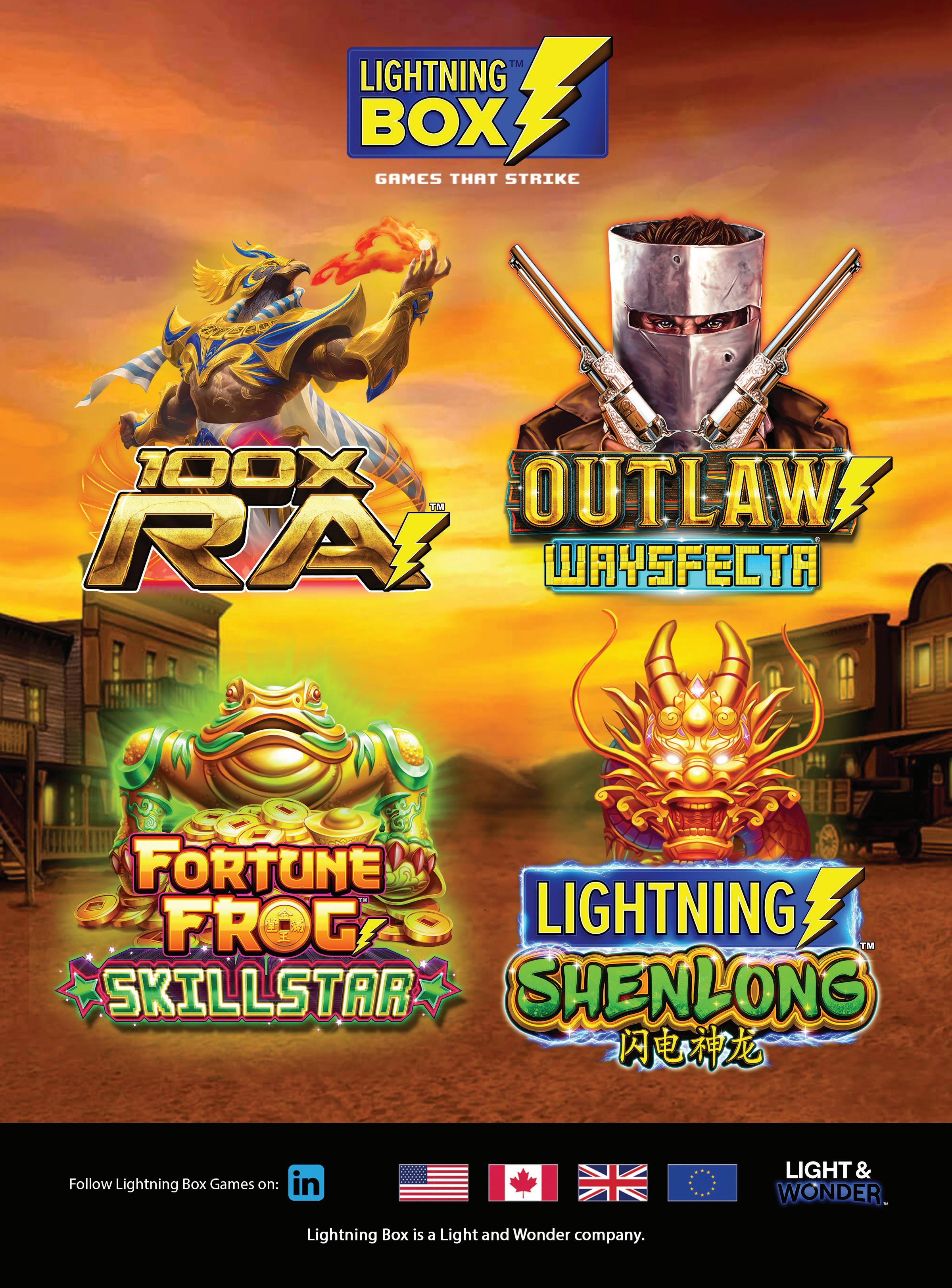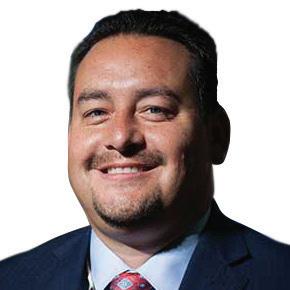
7 minute read
OKLAHOMA TRIBES TAKE A STAND
Gaming America sits down with Matthew Morgan, Chairman of the Oklahoma Indian Gaming Association, to talk about the standoff between the state governor and tribes over their gaming compact; as well as the future of an industry that is being upended by change.
Could you give our readers a brief history of the Oklahoma Indian Gaming Association (OIGA), how it fits into the state’s gaming ecosystem, and some of your successes over the years?
The OIGA has been around since 1988. We followed after the federal law was established: the Indian Gaming Regulatory Act (IGRA). We consist of members of tribal governments here in Oklahoma and also business partners in the industry that participate in Oklahoma gaming. We serve mainly three purposes: first, we attempt to educate our members, and those working in the policy side of gaming, about what our needs, wants, desires and concerns are. Secondly, we facilitate conversation from our membership to those groups, to make sure there is robust communication that is always going to assist them in whatever their economic concerns or endeavors are around gaming. Thirdly, if there is unanimity around certain issues, we carry that message forward as well, so that it’s not left up to our individual members.
We’ve been involved since day one of gaming in Oklahoma, moving from paper bingo up to electronic Class II gaming (as determined under the IGRA). In 2004, we were heavily involved in the discussion to get a gaming compact with the state of Oklahoma. Then, in the past couple of years, we have been the focal point of our members in dealing with a dispute of gaming with the state of Oklahoma and its governor, regarding some of those compact renewal terms. In a nutshell, that’s what we do.
What is the OIGA’s stance on the rise of commercial operators and the waves of legalizations that have been going on across the country for the last several years?
We are always watching whatever’s happening in the gaming industry, whether that’s commercial or tribal. Being a form of entertainment, a lot of our members are acutely aware of regional entertainment options that may present opportunities to partner with or, in terms of commercial gaming, may impact their gains. We know consumers are willing to travel to partake in whatever forms of gaming they choose.
It’s always important that we work with our stakeholders in the state of Oklahoma to try to make sure whatever our customers might want, we have an environment that will allow them to pursue those; whether that’s forms of gaming or amenities like hotels. I think the all-of the-above strategy is something that tribes must look at. But again, we have 39 tribes, 35 of which participate in gaming, and this is in a state with four million residents. There’s a lot of competition; there are a lot of unique pockets of marketing and operations happening within those jurisdictions. I think, while they compete on a day-to-day basis for those customers, they all understand that having a robust gaming environment here is better for everyone.
What if legalization were to come to immediately neighboring states. I’m thinking especially of Texas because it’s such a big market. Is that seen as an existential threat for the industry in Oklahoma?
First, I think it depends on what gaming you’re talking about. Secondly, it’s not a threat to the entire industry. You would have to look at what the customer base gets from those tribes which operate along the Oklahoma southern border. Of course, we’d look at that more in depth and decide whether there is an opportunity there, or a threat to what is being done in tribal jurisdictions.
We have a handful of tribes here in Oklahoma that participate in the marketplace across the globe in gaming efforts. They have been known to go
outside their tribal boundaries and work within the commercial markets, so those tribes would see changes further afield as an opportunity. Other tribes that may not pursue that economic endeavor may see that more as a threat to their operations. They may look into how to buffer against changes in neighboring markets or utilize some of the partners there to improve on what they’re doing.
Can you tell me about these tribes that go out and becomes more involved in the world of commercial gaming?
Again, every tribe is unique in its governmental structure and its economic pursuits. It’s not necessarily that the ones pursuing commercial gaming are bigger or wealthier. It depends on what a tribe’s purpose or goal is in terms of economic endeavors. For some of our members, gaming is not a foundational part of their economic life. For others, it is more important in terms of business impact.
A lot of those tribes that try and pursue commercial gaming have a unique expertise, which lends itself well to establishing and working outside of their boundaries. It may be that some of the operations, or other associated services, they are already doing lend themselves well to being marketed to a wider audience.
The tribal gaming community in Oklahoma is currently at loggerheads with the state government – and more specifically with Governor Kevin Stitt – over the renewal of the state’s gaming compact. Can you please elaborate on the nature of this conflict?
In late 2019, Oklahoma elected a new governor, Kevin Stitt. On the first day of 2020, there was a provision in our gaming compact that allowed for both parties to sit down and decide if they wanted to amend or renew the compact. There was a disagreement from his perspective that, if the two sides couldn’t agree, the agreement terminated. The tribes, though, were very adamant and, with most of the legislative leaders, they continue to operate under the belief that if no new terms can be agreed on, the current agreement just gets rolled over for an additional term.
Ultimately, the federal courts here in Oklahoma sided with the tribes in that dispute, and the agreement has rolled over for a 15-year term.
Has this conflict inhibited the ability of the state to allow sports betting?
The way the agreement works is that new forms of gaming are brought as an amendment to state law and then they are offered as a supplement to tribes if they’d like to partake or not. And tribes that are in a position to adopt sports betting may have a desire. But, remember, there are 35 tribes operating here, and every one of them has a unique view. What that looks like in terms of what you may be able to offer, how you may be able to offer it, what the fee-sharing agreement looks like... all of those issues are up for debate and consideration.
But ultimately, tribes need an offer from the state before they can do anything.
So the governor is simply not willing to entertain debate on this matter?
From reading media reports, the governor is open to sports betting. But sometimes

MATTHEW MORGAN
Oklahoma Indian Gaming Association Chairman
we have found that what he thinks makes economic sense does not make economic sense to tribes. He has not elaborated on what he thinks those terms mean. But, just like with every state law in Oklahoma, the legislature has to pass something, present it to him, then he would have the opportunity to weigh in on that point by either signing or vetoing the legislation. If all that takes place, that is when the offer would come to the tribe. So, there’s a lot of discussions to be had, a lot of things to consider. From our organization’s perspective, we would like to have a robust, respectful discussion on the matter.
Do you think he would rather give the licenses to just commercial operators, like what happened in New York last month?
I don’t know what Governor Stitt’s desire is but I can say this: under the current term of our gaming compact, any expansion of gaming beyond tribal operators would be a breach of that agreement. That breach would allow tribes to continue to operate its covered games, but would alleviate us of paying any type of exclusivity sharing to the state. Last year that amount was nearly $167m.
Were sports betting to become legal in the state, what in the OIGA’s eyes would be its preferred structure?
We are currently in discussion with our members on sports betting and what it looks like. Again, we have a lot of members; we have a lot of unique perspectives. Every one of them has been open to the conversation. I don’t think every one of them has decided if they want to see sports betting move or, if it does move, what that would look like. But we all have the opportunity to have those conversations individually as tribes and as stakeholders. At OIGA, we don’t move unless we have unanimous consent among our membership. So at this point, we’re having a conversation, we’re doing a lot of education, we are discussing the pros and cons of the issues that we’ve seen come up. But there is no position yet from OIGA on any of the deals.











